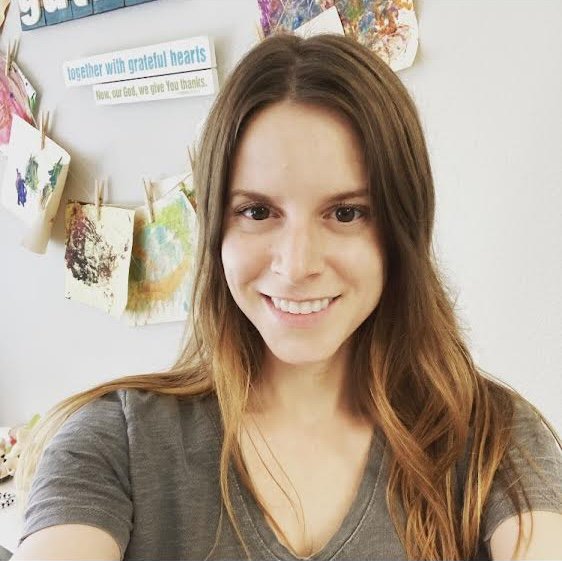Back from the Dead and Other Stories
by Ericka Clay
Back from the Dead
How much are you an accomplice to everything intent on killing you?
You don’t think this is a question you would have once considered. In fact, this question would have seemed absolutely ludicrous.
Because, after all, you can never stop anything from happening to you.
And maybe in some circumstances, that’s the case. Maybe there’s a loose grasp on the reigns so there’s no surprise when the horse bucks you off.
You live there in the dirt and don’t give it a second thought.
But at some point, you noticed the dirt wasn’t really the best place to live. And when you lifted up your head, you noticed how clean everyone else was.
But there you lay, as everything happened and with no reigns to hold.
#
Suicide seems like such a lofty goal for some. An insidious undertaking that claims a loved one or a person of someone you used to work with who always brought bologna sandwiches to work. But it’s never really been about you, even though you collect your own dark moments when it’s tried to nuzzle your shoulder.
But you don’t talk about that. Those things won’t get you followers on Instagram. So instead, you collect those instances like stray kittens with no mother, foster and hold them awhile but only in the quiet.
On the outside, everyone thinks you’re the best.
After a while it wears. Being the best. Being the smartest and being pretty and being fit and being…well, everything the world craves.
Eventually, those things wear away. We have the Fall to thank for that, and even though it all goes on its slow, downhill march, you still claw at it. Your humanness always needs to be fed.
It’s such a headache to feed it because it mostly means starving yourself. You don’t eat, which means you sleep standing up but never laying down. When you’re in bed you count the stars and talk to no one because you don’t believe in God. You silently pat yourself on the back for not needing a crutch.
You, my friend, are so strong.
The bags are thin-skinned under your eyes, and you rub your ring finger round with concealer. You pat-pat-pat, pretending you’re erasing away every little regret.
#
At work, you are the best worker. There just isn’t another option for you. You eat in the breakroom, careful to look like you’re feeding your unfed body because everyone knows rumors are worse than calories.
You’re promoted and there’s a vile sense of self-worth from everyone’s projected hate. You only need friends from the outside looking in.
You go home alone to no one but a cat who is less concerned about you than you are. You drink white wine and accidentally chip a tooth on the glass, but you keep on drinking anyways.
Your stomach rumbles, a reminder that you’re in control, and you will let it rumble with every ounce of will you have left. You watch a show on Netflix about tiny homes, wondering why seemingly competent people would be willing to contort their bodies just to live in a shoebox.
#
Your days are weeks now and your family are voices lost in your voicemail. You sometimes call back when you know they’re not available and turn off your read receipts on your phone.
You text like Lazarus, back from the dead.
Everyone smiles if they see you in Wal-Mart, but their well-wishes are tinged with an “Are you okay?” You thwart it, though, with a question about the baby, a soft touch on the arm, a general warm undertone that emanates from your malnourished skin.
“No, absolutely not,” your eyes struggle to say, but you swat them away, batting your lashes.
#
There’s a church you drive by where all the people are. You think about those people more than the people you actually know. What is so different about them that they can congregate every week, being their same selves, and not panicking or vomiting as they walk up the steps?
What’s so different about you that the notion plays like astrophysics in your head?
One day, you think, Maybe I’ll get there. Maybe, I’ll clean myself up, scrub off all the dust, and walk in like I’m my same self too.
#
There’s a tug deep, deep, deep. It’s inside of you as your eyes scan the out. You’ve sunk chin-deep in the tub. It’s the perfect scenario for your friend, Death, to come and whisper all the things you already know: you’re alone, you’re so hungry and tired. That cat won’t stop staring at you. Why don’t you just walk away? Let’s walk away together.
You sink, sink, sink, a little deeper than you thought you might. The water is warm. There’s a soft end to all the hard you’ve had to endure. Don’t you deserve it?
But then, a still, small voice. It says your name. How does it know your name? You push up, break the surface of your bath and look around, but the only thing you see is the cat staring back at you. Again, you hear your name, as if it were knitted long ago before your cells ached and danced. You want to hear your name forever, so you clutch onto it, wondering why it feels like it’s inscribed in your very DNA.
All the regrets under your eyes are there in the tub, and something guides your hand, removing the plug.
The water—it washes you clean as all the burden swirls down the drain.
Your heart finally has something to hold on to.
The LORD is close to the brokenhearted and saves those who are crushed in spirit.
Psalm 34:18
A Liar but Only Sometimes
There’s always the checkbox. It asks me if I’m Caucasian, and I say yes. And then it asks me if I’m of Hispanic descent.
I sometimes say yes. And sometimes say no.
I am. So I’m a liar but only sometimes.
I’m fair-skinned. No, that’s an understatement. I’m paper-thin white, a lovely shade you don’t often see soaking in the sun. I do tan, which I suppose is due to my Hispanic descent, the heritage I often avoid on most official documentation.
Sometimes, I guess I just don’t feel worthy.
What would this privileged white girl know about anything like that?
#
The thing I remember most about my grandfather was his hands. He had part of his finger chopped off when the hood of an airplane came crashing down and smashed his fingertip. That happened when I was old enough to process it. I felt like I lost my own fingertip too.
Another thing about his hands was how brown they were. When I was young I was in love with Rudy Huxtable. I wanted nothing more in life than to be Rudy Huxtable. And I figured my grandfather was my ticket to truly embracing my African American roots. And when I discussed this with him, he just shook his head and said, “Sorry, I’m Mexican.”
That blow was as painful as losing a fingertip.
#
My grandfather told me a story once. When he joined the Air Force, they’d bus him from Eagle Pass, Texas (which was where he was from) all the way to Little Rock, Arkansas at the Jackson Air Force base. The first time he headed back home on that bus, he had to wait at the bus stop. He remembered walking inside, looking for a seat, and seeing two signs. One said “Whites” and the other said “Coloreds.” He told me he looked down at his hand then back at the signs and then back at his hands. He chose the sign that said “Coloreds.”
He went to sit down, and a white gentleman stopped him and said, “No son, you’re with us.”
So, he went with the white man and sat with all the other white people and pretended nothing about what had just happened was the least bit confusing.
#
I got a nosebleed once. Well, not only once. I suppose several times in my small lifetime. But this one time, when I was five, I was watching the Miss America pageant with my grandfather and a slow red trickle of myself trailed down my lip. My grandfather told me to lie down, so I did, and he put a cold washcloth on my forehead. I watched his brown hands hover above my face—the cool feel of terrycloth against my skin—and noticed his fingers, long and whole.
It would only be a matter of time.
#
In the back of my grandfather’s car, I watched the world go by. We were going somewhere on the highway, my grandmother sitting in the passenger seat. We were listening to the “oldies,” the sounds of their youth, and I’d study the side glimpses of their faces, making my brain see them as maybe they once were.
And as I looked out to my left, two young white guys were shouting and throwing up their hands at my grandfather who hadn’t been doing anything wrong. But my grandfather just ignored them, staring straight ahead, and all my brain could process now was the brown of his skin.
#
In the sixth grade, my social studies teacher was teaching us about the ethnic makeup of the greater Houston area. We were taught that the Mexicans lived on “the other side of the tracks.” I never understood where these tracks were or how I was never aware they even existed. You would have thought I would have at least received a memo.
Later on, a cherished family member would talk about her maid, about how this maid was Mexican, and how she lived on “the other side of the tracks,” and I told her how I was part Mexican.
“Oh well, you’re a different kind,” she said, smiling reassuringly.
#
I don’t talk to my grandfather anymore, for reasons that I won’t go into here. I love him, I forgive him. I pray for him weekly. And losing him, I suppose, hurts much worse than losing a fingertip.
I struggle with myself sometimes, as if the two versions of me are shouldering their way to the forefront. I want to be something I am, but I don’t know the least thing about being something I’m not. How presumptuous to check a box that holds all my stories. But then my skin. How it always betrays me.
At least the One who created it never will.
Ericka Clay is a published novelist and poet. As a former atheist turned believer, she seeks to write raw, real, relatable books that have a heart for Jesus. She's been awarded several times by Writer's Digest for her short fiction pieces and is working on her latest novel, A Bird Alone (due to be completed Summer 2023). She lives in Northwest Arkansas with her husband, daughter, one ornery chihuahua, and an insatiable need to push buttons, both figuratively and literally.


